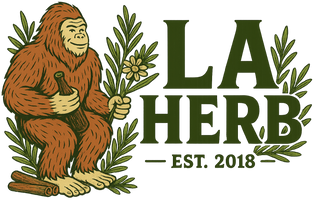Traditional Chinese Medicine (TCM) is one of the world’s oldest healing systems, with roots stretching back more than 2,000 years. At its core is the belief that health comes from balance—between Yin and Yang, between the internal organs, and between the body and nature. When these forces are in harmony, energy (Qi) flows freely and vitality flourishes.
Herbs play a central role in maintaining this balance. Each plant carries its own energetic qualities—warming or cooling, drying or moistening, tonifying or dispersing. By choosing the right herbs, practitioners guide the body back toward equilibrium.
This article explores some of the most important TCM herbs used to balance energy and restore health.
The Concept of Qi and Balance
Qi (pronounced “chee”) is often translated as “life force” or “vital energy.” In TCM, illness is seen as a disruption in the flow of Qi, whether through deficiency, stagnation, or excess. Herbs are prescribed to restore proper flow and balance.
-
Yin represents coolness, stillness, rest, and inward energy.
-
Yang represents warmth, activity, movement, and outward energy.
A person who is always tired and cold may need Yang tonics, while someone with heat and restlessness may need Yin-nourishing or cooling herbs.
Key TCM Herbs That Balance Energy
Astragalus (Huang Qi) – The Qi Protector
Astragalus root is a powerful Qi tonic that strengthens the body’s defenses.
-
Traditional role: Tonifies the spleen and lungs, boosts protective Qi.
-
Benefits: Immune support, improved energy, resilience against stress.
-
Common uses: Decoctions, soups, or combined with other tonics.
Coptis (Huang Lian) – The Bitter Cooler
Coptis is known for its intense bitterness and strong cooling properties.
-
Traditional role: Clears heat, drains dampness, supports digestive health.
-
Benefits: Antimicrobial activity, digestive balance, cooling for excess heat conditions.
-
Common uses: Decoctions, often combined with gentler herbs like licorice.
Licorice Root (Gan Cao) – The Harmonizer
Few herbs are as versatile as licorice root, which appears in countless TCM formulas.
-
Traditional role: Harmonizes and moderates harsh properties of other herbs.
-
Benefits: Soothes digestion, eases throat irritation, reduces inflammation.
-
Common uses: Decoctions, teas, or as a natural sweetener in blends.
Goji Berry (Gou Qi Zi) – The Nourishing Fruit
Goji berries are both a food and a medicine in Chinese tradition.
-
Traditional role: Nourishes the liver and kidney, supports vision, boosts Yin.
-
Benefits: Rich in antioxidants, supports eye health and longevity.
-
Common uses: Eaten as snacks, added to soups, brewed into teas.
Schisandra (Wu Wei Zi) – The Five-Flavor Fruit
Schisandra is famous for containing all five flavors recognized in TCM, making it a uniquely balancing herb.
-
Traditional role: Stabilizes Qi, tonifies kidney and lung function, calms the spirit.
-
Benefits: Adaptogen for stress, enhances endurance, supports liver function.
-
Common uses: Teas, tinctures, powdered blends.
Ginseng (Ren Shen) – The Vitality Root
Ginseng is one of the most famous tonic herbs, revered for its powerful ability to restore energy.
-
Traditional role: Strongly tonifies Yuan Qi (original Qi), supports spleen and lung health.
-
Benefits: Boosts stamina, enhances mental clarity, supports immune balance.
-
Common uses: Decoctions, tinctures, or sliced and simmered in soups.
Combining Herbs for Balance
In TCM, herbs are rarely used alone. Instead, they are blended into formulas where each plant plays a role:
-
Chief herb: Primary action against the condition.
-
Deputy herb: Assists or addresses secondary symptoms.
-
Assistant herb: Reduces side effects or balances the formula.
-
Envoy herb: Guides the formula to the right channels or organs.
For example, astragalus may serve as a chief Qi tonic, while licorice acts as the harmonizer, making the blend more balanced and palatable.
Safety and Considerations
While TCM herbs are natural, they are also powerful. Some, like coptis, are very strong and should be used in moderation or only under guidance. Others, like ginseng, may be too stimulating for those with certain conditions.
It’s important to source herbs from trusted suppliers to ensure purity and authenticity, as quality greatly impacts results.
Final Thoughts
The wisdom of Traditional Chinese Medicine lies in its holistic approach—seeing the body as a system of interconnected energies rather than isolated symptoms. Herbs like astragalus, licorice, schisandra, and ginseng are not just remedies; they are tools for restoring balance, protecting health, and nurturing longevity.
Whether you’re sipping goji berry tea, simmering astragalus root in soup, or exploring more complex formulas, each herb offers a piece of the ancient knowledge that continues to support wellness today.
Discover authentic TCM herbs at LAHerb.com and bring this timeless wisdom into your daily life.
